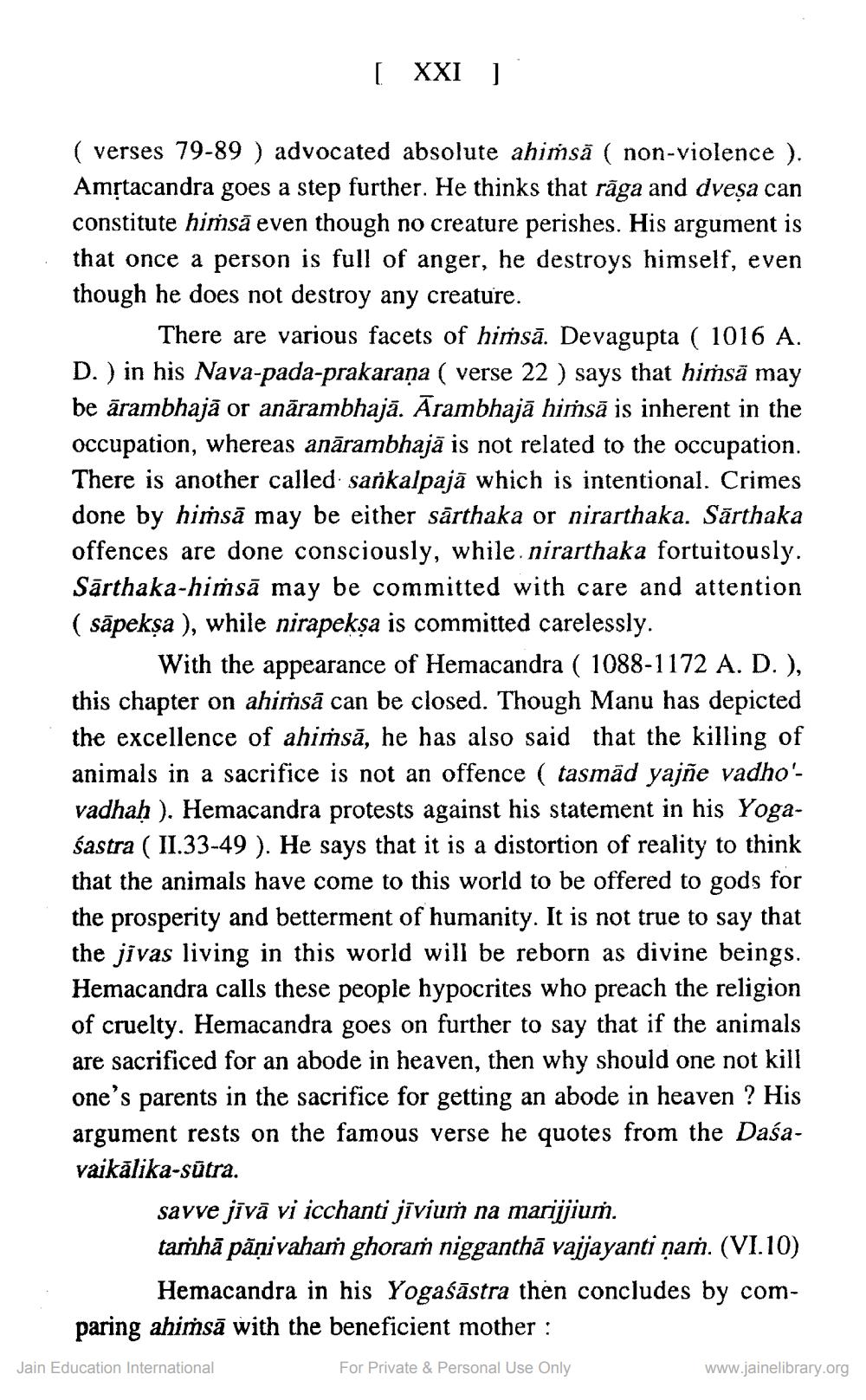________________
[ XXI ]
( verses 79-89 ) advocated absolute ahiṁsā ( non-violence ). Amstacandra goes a step further. He thinks that rāga and dvesa can constitute hiṁsā even though no creature perishes. His argument is that once a person is full of anger, he destroys himself, even though he does not destroy any creature.
There are various facets of hiṁsā. Devagupta ( 1016 A. D. ) in his Nava-pada-prakarana ( verse 22 ) says that hissä may be ārambhajā or anārambhajā. Ārambhajā hiṁsā is inherent in the occupation, whereas anārambhajā is not related to the occupation. There is another called sankalpajā which is intentional. Crimes done by hiṁsā may be either sārthaka or nirarthaka. Sārthaka offences are done consciously, while. nirarthaka fortuitously. Sārthaka-hińsā may be committed with care and attention ( sāpekṣa ), while nirapeksa is committed carelessly.
With the appearance of Hemacandra ( 1088-1172 A. D.), this chapter on ahimsā can be closed. Though Manu has depicted the excellence of ahiṁsā, he has also said that the killing of animals in a sacrifice is not an offence ( tasmād yajñe vadho'vadhah ). Hemacandra protests against his statement in his Yogasastra ( II.33-49 ). He says that it is a distortion of reality to think that the animals have come to this world to be offered to gods for the prosperity and betterment of humanity. It is not true to say that the jivas living in this world will be reborn as divine beings. Hemacandra calls these people hypocrites who preach the religion of cruelty. Hemacandra goes on further to say that if the animals are sacrificed for an abode in heaven, then why should one not kill one's parents in the sacrifice for getting an abode in heaven ? His argument rests on the famous verse he quotes from the Daśavaikālika-sutra.
savve jīvā vi icchanti jīvium na marijjiuṁ. tamhā pāņivahaṁ ghoram nigganthā vajjayanti ņam. (VI.10)
Hemacandra in his Yogaśāstra then concludes by comparing ahimsā with the beneficient mother : Jain Education International For Private & Personal Use Only
www.jainelibrary.org




